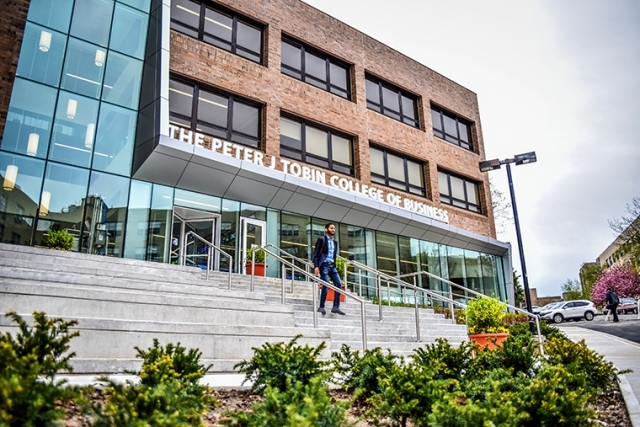Graduate School: The Career Path You Might Overlook

Deciding to pursue graduate school is a pivotal choice that can profoundly shape your future. As more students turn to advanced education to gain a competitive edge, the question arises: Is it the right path for you? This guide explores the lasting impact graduate school can have on your career and personal growth, helping you weigh the benefits and key factors before making this life-changing decision.
What is graduate school?
Graduate school is an advanced educational pathway following an undergraduate degree. It offers various programs, including
Master’s Degrees Examples
Master of Science (M.S.); Master of Arts (M.A.); and Master of Business Administration (M.B.A.)
Doctoral Programs Examples
Doctor of Philosophy (Ph.D.); Doctor of Medicine (M.D.); and Doctor of Jurisprudence (J.D.)
Understanding the Differences between Master’s and Doctoral Programs
When considering graduate school, it’s essential to understand the primary differences between master’s and doctoral programs, as they serve distinct purposes and require different levels of commitment.
Master’s Degrees
Duration: Typically, one to two years to complete
Purpose: Master’s programs are designed to deepen your knowledge in a specific field, providing advanced skills for professional growth or a career change. They often serve as a steppingstone for higher positions in the workforce.
Doctoral Programs
Duration: Typically, four to seven years to complete
Purpose: Doctoral programs, such as Ph.D. or Doctor of Education (Ed.D.), are aimed at students who want to contribute original research to their field, teach at the university level, or reach the highest levels of expertise in professions such as medicine or law.
What are the benefits of graduate school?
There are many advantages to attending graduate school, especially at St. John’s University. Amber J. Steiger, Director of Graduate Admission, shares with us just a few of the many great benefits offered to students at St. John's University:
Career Services: Access to résumé reviews, interview workshops, and career fairs to help you navigate postgraduation opportunities
Alumni Network: St. John’s graduates are part of a vast alumni network eager to support and hire fellow alums.
Scholarships: Many admitted students qualify for multiple graduate scholarships.
Study Abroad Opportunities: Unique to St. John’s, graduate students have opportunities to study abroad through Graduate Degree Completion programs.
Flexible Learning: Evening classes and online options allow working professionals to balance their education and careers.
Campus Life: From cheering for National Collegiate Athletic Association Division I athletic teams to accessing the state-of-the-art health St. Vincent Health Sciences Center and research labs, you’ll engage with a diverse student body and benefit from small class sizes with faculty mentorship.
In addition to these core benefits, St. John’s provides additional resources to enhance your graduate experience:
- One-on-one academic advising and office hours with professors
- Writing center and tutoring services to support your transition
- Programs like the TGIF for students in The Peter J. Tobin College of Business or Advanced Standing for select programs
Attending Graduate School in New York City (NYC)
Studying at St. John’s University’s Queens or Manhattan, NYC, campuses offers unlimited academic and professional opportunities, with direct access to top industries and cultural experiences in the heart of New York City. Discover more about the benefits of studying in NYC.
Three Key Considerations When Choosing Graduate School
1) Assess Your Career Goals.
Before deciding on graduate school, reflect on your long-term career goals. Ask yourself
- Does your field require an advanced degree (e.g., medicine, law, academia)?
- Are you looking to elevate your career to a higher financial or professional level?
- Are you interested in research or teaching?
2) Assess Your Readiness for More Academic Rigor.
Graduate school requires a higher level of commitment. Here are some questions to help determine if you’re ready:
- Are you passionate about the subject you want to study?
- Can you balance the demands of coursework with your personal life?
- Do you have a support network in place?
3) Assess the Financial Investment of Graduate School.
Understanding the financial aspect is crucial. St. John’s offers several financial aid options:
- Scholarships: Many graduate students are eligible for scholarships.
- Tuition Remission Benefits: Employers may offer tuition benefits for working professionals.
- Graduate Assistantship: This is an opportunity that provides financial aid in exchange for work.
- Payment Plans: This option helps manage tuition costs over time.
For more information, visit Graduate Scholarships.
Graduate Student Success Story
“St. John’s access to various professional resources, including networking events and career fairs, helped me build my career and expertise. I secured an internship—as well as a job offer—even before graduating.”
—Itashna Geerwar’22GSRM
Making the Decision: Is Graduate School Right for You?
Deciding to pursue graduate school is a personal journey. Before committing, consider your career goals, academic readiness, and financial situation. If you are still unsure, speaking with an academic adviser or career counselor at St. John’s University may be beneficial to help guide your decision.
Explore St. John’s University graduate programs, or connect with our Graduate Director for personalized guidance:
Amber J. Steiger (she/her)
Director of Graduate Admission
St. John’s University
[email protected]








